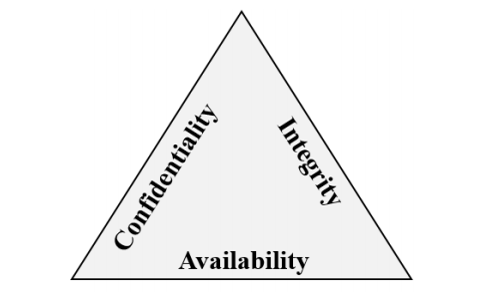# Confidentiality, Integrity, Availability (CIA)
#cyber-security #security
As described in Defence In Depth strategy uses a series of mechanisms to slow the advance of an attack. All the different mechanisms (technologies, processes, and training) are elements of a cybersecurity strategy, whose goals include ensuring confidentiality, integrity, and availability; often referred to as CIA.
 Confidentiality refers to the need to keep confidential sensitive data such as customer information, passwords, or financial data. You can encrypt data to keep it confidential, but then you also need to keep the encryption keys confidential. Confidentiality is the most visible part of security; we can clearly see need for sensitive data, keys, passwords, and other secrets to be kept confidential.
Confidentiality refers to the need to keep confidential sensitive data such as customer information, passwords, or financial data. You can encrypt data to keep it confidential, but then you also need to keep the encryption keys confidential. Confidentiality is the most visible part of security; we can clearly see need for sensitive data, keys, passwords, and other secrets to be kept confidential.
Integrity refers to keeping data or messages correct. When you send an email message, you want to be sure that the message received is the same as the message you sent. When you store data in a database, you want to be sure that the data you retrieve is the same as the data you stored. Encrypting data keeps it confidential, but you must then be able to decrypt it so that it’s the same as before it was encrypted. Integrity is about having confidence that data hasn’t been tampered with or altered.
Availability refers to making data available to those who need it, when they need it. It’s important to the organization to keep customer data secure, but at the same time it must also be available to employees who deal with customers. While it might be more secure to store the data in an encrypted format, employees need access to decrypted data.
While the goals of a cybersecurity strategy are to preserve the confidentiality, integrity, and availability of systems, networks, applications, and data; it’s the goal of cybercriminals to disrupt these goals. Microsoft’s portfolio includes the solutions and technologies to enable organizations to deliver on the goals of the CIA triad.
First mentioned in NIST publication from 1977